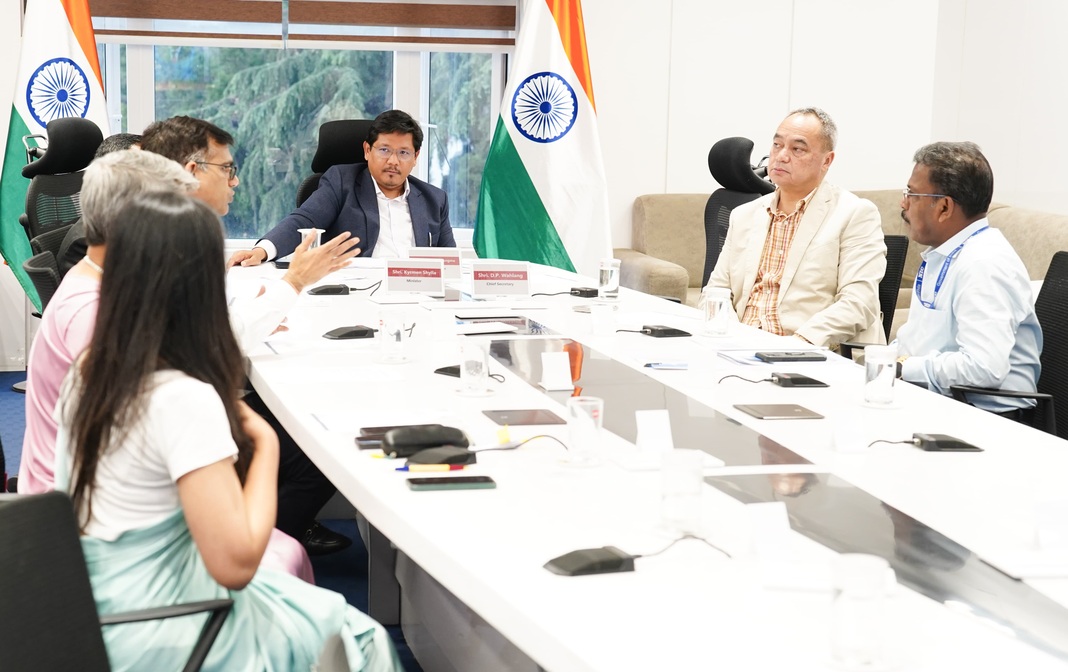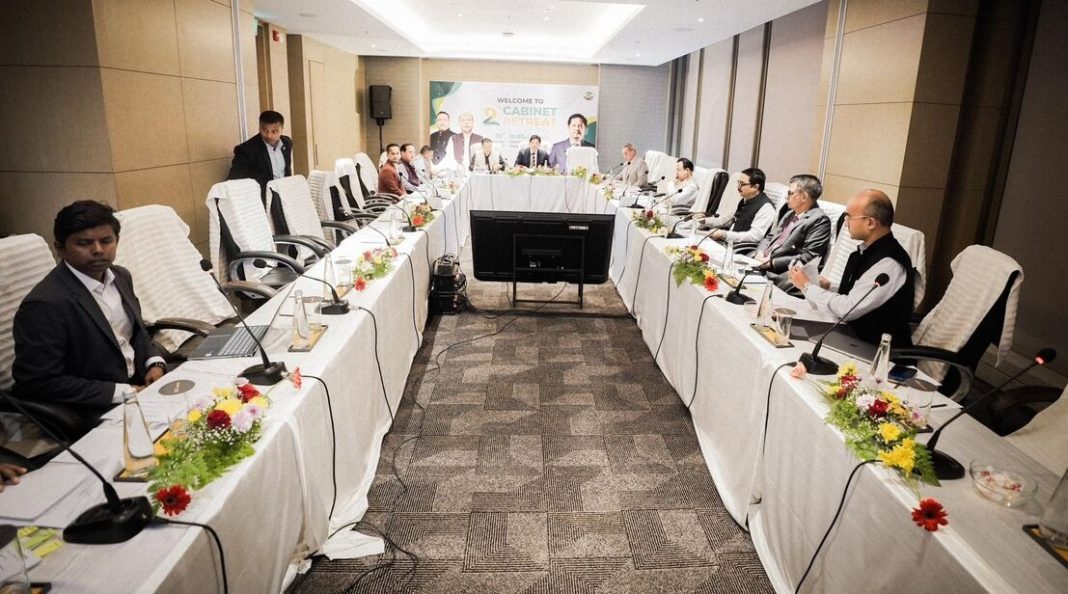Govt not to intervene in functioning of district councils: CM
Shillong, Aug 26: The Meghalaya government has decided to form three sub-committees to engage with the Garo Hills Autonomous District Council (GHADC), Khasi Hills Autonomous District Council (KHADC), and Jaintia Hills Autonomous District Council (JHADC) on its move to pay salaries to their employees from November 1 and addressing their financial and administrative challenges while ensuring that they maintain their autonomy and powers enshrined in the Indian Constitution.
“The sub-committees will engage with the three ADCs over the next 45 days and submit a report to the state government,” Chief Minister Conrad K Sangma told reporters after chairing a cabinet meeting on Tuesday.
“The government will take a decision based on the reports received from the sub-committees on how to move forward with each ADC,” he added.
Sangma also made it clear that the ADCs are at liberty to reject these proposals completely saying, “This is not mandatory. This is purely to do with the financial stability of the councils.”
He assured that the government will not intervene in the functioning of the councils, including land issues, traditional rights, and powers enshrined in the constitution.
“Therefore, there is no question and no chance for the state government to in any way go into the different functionings of the ADCs.”
The chief minister said the government will provide financial support to the ADCs, including payment of salaries, conditional on financial reforms.
The ADCs will be required to have a Principal Secretary, preferably a senior MCS or IAS officer, to oversee financial administration and ensure that funds are utilized specifically for salaries and financial reforms.
“We are concern about the financial stability of the ADCs. So we would be asking the councils to have a principal secretary of the position of either a senior MCS officer or a senior IAS officer to look into the overall financial administration of the councils to ensure that the money that is being given is utilized specically for salaries and financial reforms like service rules – which is important because employment and all these aspects are what leads to the instability of the councils. So reforms will be required. Let me be very clear we are talking about financial reforms only. Whether it is service rules or financial rules or whether it is procurement policy and disbursement of the money meant for salaries are going through the accounts and ensure employees get their salaries, these are the areas which we want the principal secretary to be there to monitor,” Sangma underscored.
“Let me make it very clear that government will not intervene in the functioning of the council whether it is to do with land issues, whether it is to do with traditional rights, whether it is to do with any kinds of power that are enshrined in the constitution, it is the prerogative of the ADCs. Even if the state thinks from even one minute that it is going to do something in that line the constitution is there to protect it,” he added further.
Terming the government’s decision as important, Sangma said the ADCs particularly the GHADC are facing acute financial crises, with a significant deficit between revenue collection and salary requirements.
“Last year, the GHADC had a salary requirement of about Rs 70 crore whereas its total revenue collection was less than Rs 25 crore. So we are talking about a Rs 40-45 crore deficit. Similarly in JHADC, there is some deficit in terms of revenue and hence the council is not in a position to pay salaries. The KHADC is in a much better position in the past 15-20 years, the manpower has been controlled to a large extent. It has roughly 800 employees,” he stated.
He said that GHADC has not allowed any kind of appointments to be made during the last 6-7 years due to which the number of employees have gone down from 2300 to 1300. Similarly, the number of employees in the JHADC have come down from 2000 plus to 1300-1400.




